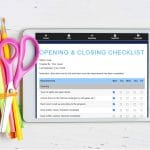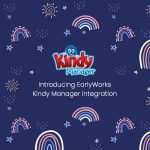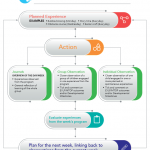It’s not that I don’t want to engage in critical reflection!
Critical reflection seems to be one of those tasks that as early childhood educators we know we should be doing, and often we do want to engage in critical reflection, but somehow at the end of a busy week, it’s the one thing we haven’t got to. Or have we?
According to Thinking About Practice – Early Childhood Australia, “reflective practice involves engaging with questions, gathering information, critically examining what is happening and reflecting on what might have changed”. I wonder how many educators have had passing conversations where they ask questions about what they do and why they do it, and then consider other ways of knowing and being?
For example, questioning why the lunch tables are organized they way they are, questioning why we group children the way we do, questioning how changing that grouping might enhance children’s sense of belonging, or questioning why some parents seem reluctant to make contact with educators and how we can better reach out to those parents so that they feel like they belong to our community…
I wonder then if many of us do engage in critical reflection, we just don’t have any tangible record to include in our service’s QIP, or show to the rating and assessment team.
Using EarlyWorks, educators can easily engage in critical reflection in two simple ways: Program Comments and Reflections of Pedagogy. And the good news is, these critical reflections CAN be used as evidence :-).
By simply clicking on Program Comments, educators can engage in online discussions with other educators in their room about any aspect of the Program. Those passing discussions that were already happening can then be documented and acted upon. By having a physical record, valuable insights and ideas are not lost; instead they are built on and then acted upon as more insights are added. Then we can reflect on the impact of our actions. In other words, ask ourselves what has changed? What more can we do?
Using the Reflections of Pedagogy, educators can engage more deeply with the Principles, Practices and National Quality Standards. For example, educators might reflect on one Practice such as ‘learning through play’ and look back at the program and notice when the children engaged in play based learning. Was this play always equitable and fair? How did my interaction with the children help sustain play and extend children’s thinking? What else could we have done?
Once educators have entered their reflections into EarlyWorks, a conversation has been opened up as managers are able to provide their feedback and insight. So EarlyWorks provides a platform for information to be gathered, insights to be shared, and decision making to be enriched.







